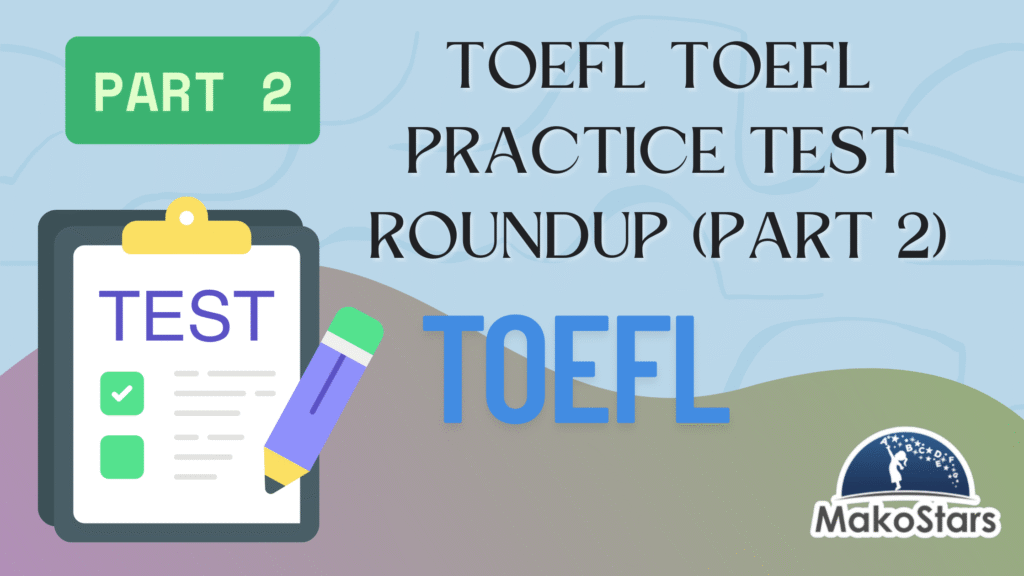Mastering English Academic Writing - Key Tips for Success
Table of Contents
Introduction
Many college students find academic writing difficult. Especially those who need to become more familiar with the norms and expectations of higher education. However, students must grasp this ability since it helps them to express themselves properly, construct rational arguments, and achieve academic success.
This writing guide which will provide effective techniques to improve English academic writing will be covered in this tutorial, along with topics like style, structure, and how to write with confidence.

Understanding Academic Writing Style
A formal, impartial, and clear style is necessary for English academic writing. It values accuracy and clarity above slang, contractions, and excessively complicated language. Effective idea communication is intended to make it easy for college students and other readers to follow the argument.
Logical structure, evidence-based reasoning, and a balanced tone that isn’t unduly opinionated or personal are all stressed in academic writing. It takes careful word choice and well-structured sentence construction to achieve this style.
By following this writing guide, college Students can make their work understandable and believable to an academic audience by presenting their points in a consistent, polished tone. College students must maintain awareness of their word choices and value clarity above everything else to adopt this style.
Academic writing typically follows specific conventions, such as:
- Formal Tone: Steer clear of informal words and contractions like “don’t” and “can’t.”
- Impersonal Writing Style: It focuses on the concepts rather than the author. An alternative to “I think,” you may add “It is evident that” or “Research shows.”
- Precision and Clarity: Be clear and concise. Steer clear of vague remarks or highly complex language that could mislead your audience.
- Evidence-Based: Back up your claims with facts, analysis, or quotes from reliable sources.
Key Elements of Structure
In mastering English academic writing, structuring your paper effectively is crucial. Here’s a breakdown of the key elements:
The Importance of Structure in Academic Writing
Your writing’s structure is key to keeping clarity and clarity. This well-structured blog makes it easy for them to follow your ideas. The typical format for English academic writing consists of the following:
Introduction
The first part of your paper, the introduction, sets the tone for the full piece. The paper statement, a topic outline, and some background details should all be included.
The primary argument or goal of the paper is stated simply in a strong conclusion.
Important Elements of an Introduction:
- Hook: An attention-grabbing starting statement that is charming.
- Context: A succinct background that provides the framework for your subject.
- Thesis Statement: The primary claim or subject of the blog is highlighted in a thesis statement, which is a brief, simple statement.
Body Paragraphs
It states the most important topic or problem covered within the text in a thesis statement.
A clear topic sentence has to be found in every paragraph, evidence in the form of facts or examples to support the claim, and then a conclusion must be made with a statement that connects the paragraph with the main point.
Key Components of a Body Paragraph:
- Topic Sentence: The paragraph’s primary theme starts in the topic sentence.
- Supporting Evidence: It provides the reader with facts, examples, or quotations that support the claim.
- Analysis and Explanation: Connects the evidence to the big idea.
- Concluding Sentence: This sentence summarizes the paragraph and connects its major topic to the thesis.

Conclusion
Your reasons are summed up in the conclusion, which also supports the thesis. It should connect the major ideas you’ve covered in the body paragraphs rather than providing fresh information.
Key Components of a Conclusion:
- Summarize the thesis: Restate the paper’s primary contention or goal.
- Highlight Key Points: Provide an overview of the main ideas addressed in the body paragraphs.
- Closing Thought: Provide a conclusion or suggestion for more study or action.
Writing Style and Tone
The academic tone of your work should be reflected in the way you write. The following writing guide will help you make sure your writing style is suitable for academic settings:
- Employ Formal Language: Steer clear of colloquialisms, slang, and informal language. Make use of formal language and phrases that effectively communicate your thoughts.
- Be Brief: Clarity and clarity are important in academic writing. Stay away from repeated or long-winded statements.
- Steer clear of personal bias: English academic writing ought to be objective. Avoid emotionally effusive diction such as “I believe, in my opinion,” and present facts and supporting data forthrightly and usefully.
It is more straightforward and clear in English academic writing; although the passive voice is used, the active voice is not.
Research and Utilize Sources
It is one of the most necessary tools in English academic writing. It requires you to back your claims with evidence from credible sources.
For instance, use books, research papers, and journals of scholarship.
Finding Reliable Sources
Ensure you have credible sources to support your English academic writing. A reputable website and academic journals, as well as peer-reviewed magazines, would give you good information.
Avoid sources that may be obsolete, prejudiced, or not reliable enough. You can get credible sources through online databases like PubMed, JSTOR, or Google Scholar.
Incorporating Evidence
After collecting credible sources, you need to effectively incorporate the data into your essay. Evidence can be incorporated in several ways:
- Straight Quotes: Cite sources directly to emphasize a point. Make sure the quote is clear and suitable.
- Paraphrasing: When paraphrasing, make sure to use your own words while keeping the correct quote style.
- Summary: Reduce lengthy passages of material into a concise overview of the main points.

Citing Your Sources
Sources cited are one of the most significant elements in English academic writing. Proper citations and referencing styles ensure the absence of plagiarism, and they give credit to original authors by strengthening the argument presented.
The three citation styles depend on the discipline: APA, MLA, or Chicago. One should adhere to the specific citation guidelines set by their university.
Common Writing Mistakes to Avoid
Even experienced writers can make errors in essay writing. The following are typical mistakes to steer clear of when writing academically:
- Spelling and grammar errors: Spelling or grammar mistakes might damage your reputation. To find any mistakes, proofread your work often.
- Overuse of Quotes: Although quotes have their uses, employing them overly might make your writing appear weak and cluttered. Whenever possible, attempt to summarize or paraphrase instead.
- Absence of a Clear Argument: A thesis or argument must be present in every academic work. Don’t make unclear or false statements.
- Too wordy: English academic writing does not tolerate wordiness. Avoid using unnecessary words and long sentences.
- Plagiarism: Provide proper permission to your references to avoid plagiarism. Accidental plagiarism can have devastating effects.
Editing and Proofreading
Now, after creating your first draft, come the revising and editing of your work. After all, editing and proofreading are parts of the entire writing process that help you do better in your writing.
Revising
Editing entails checking your work for structure, unity, and clarity. Pose the following queries to yourself:
- Does the thesis statement in your article have focus and clarity?
- Do your claims have solid proof to back them up?
- Does the paper follow a logical structure?
- Are your sentences and paragraphs precise and clear?
Editing
The aim of proofreading is to look for grammar, spelling, and punctuation mistakes and to ensure proper use of academic vocabulary. This stage makes sure that your writing is free from errors and flawless.

Writing Practice and Improvement
Excellence in English academic writing needs practice and time. The following writing guide will help you become a better writer:
- Read Academic Papers: To understand the writing style, structure, and tone, read academic papers on your subject. Take note of the arguments’ presentation and proof.
- Write Often: To improve your writing abilities, try composing essays, research papers, or even brief blog entries.
- Request Feedback: Get input on your work from your instructors, fellow students, or writing tutors. Giving yourself constructive feedback can help you get better.
- Attend Writing Workshops: Many institutions have writing centers or workshops to help you with your writing.
Developing Strong Arguments
One of the most important aspects of writing an academic paper is providing evidence for ideas.
This could be in the form of a research paper or a contrary essay where you have to support your argument with credible sources, whether academic reporting, books, or trustworthy websites.
Evaluate the reliability and connection of the sources and cite them properly to avoid plagiarism. Your arguments should also have logical reasoning. Every argument must make sense, show links between concepts, and end with a compelling conclusion.
College Students’ Writing Tips
College students who want to become excellent in English academic writing might use these useful academic writing tips:
- Organize Your Writing Process: Divide the process into smaller, more reasonable steps, such as research, drafting, revision, and study. Setting aside time for each step reduces tension at the last minute and enhances the caliber of your job.
- Outline Your Ideas: To guarantee a logical flow of ideas and to arrange your thoughts, start with an outline. Your work will remain clear if you have a precise plan that helps you stay focused on your argument and topic.
- Employ Concise and Clear Language: English academic writing emphasizes clarity above intricacy. Aim for clear, concise language rather than excessive jargon or complex sentences.
- Support with Evidence: Provide evidence to back up your claims by checking reliable sources. Make sure every paragraph advances your thesis and supports it with examples and proof.
- Edit and revise carefully: After drafting, put your work on hold for a bit before giving it a second look. Pay attention to grammar, coherence, and clarity. Peer review is also a great way to improve your writing.
- Practice Often: Writing becomes better with practice, just like any other skill. Set aside time for writing outside of tasks to hone your university writing skills, gain confidence, and reduce the anxiety linked to English academic writing.
Using Citations and Academic Integrity
A vital aspect of English academic writing is properly citing sources. Avoid plagiarism and allow the original authors to guarantee academic integrity. Different disciplines employ different reference styles, such as APA, MLA, or Chicago.
Thus, it’s important to know and adhere to the proper format. Using the right citations shows your knowledge of the topic and supports your claims with reliable proof.
To properly credit the sources you’ve used, always include a reference list and in-text citations. Following citation criteria preserves the standards of academic work, promotes confidence, and shows intellectual reliability.
Building Confidence in Academic Writing
It takes patience and dedication to develop confidence in English academic writing. Accepting the writing process and dividing it into digestible phases—planning, drafting, revising, and proofreading—is one of the first steps.
Write as soon as possible to give yourself a chance to think things through and polish your ideas. Before you start writing, outline to help you organize your ideas and make sure your work makes sense.
Revision is necessary to improve grammar, consistency, and clarity.
Don’t be scared to revise passages for greater coherence or more compelling reasoning.
Feedback is important; ask for it from peers, instructors, or writing centers to get new insights and enhance your work.
Regularly writing and reading scholarly blogs also improves your abilities. Your confidence in your ability to communicate ideas clearly will grow as you write more.
The academic writing process grows less daunting with practice, allowing you to write more polished and clear work.

Conclusion
Developing skills in English academic writing is essential for college students since it not only improves their capacity for clear concept expression but also has a big impact on their academic performance.
College Students can greatly increase their writing proficiency by understanding the fundamentals of academic writing, which include avoiding frequent writing errors, employing evidence-based reasoning, keeping an official tone, and properly placing essays.
Research, citation, and logical reasoning all contribute to the quality of academic work by improving its reliability and scholarly worth.
College Students can improve their writing abilities over time by adhering to citation standards, practicing frequently, and receiving regular feedback.
As developing English academic writing confidence takes time, students can more easily handle the challenges of academic communication with focused work.
By becoming proficient in these methods, college students develop a set of transferable skills that will help them in a range of personal and professional contexts in addition to improving their academic writing.




![12 Basic Grammar Rules to Write Like a Pro [2025 Guide]](https://englishlearninghub.online/wp-content/uploads/2025/07/12-Basic-Grammar-Rules-to-Write-Like-a-Pro-2025-Guide-1024x576.png)

